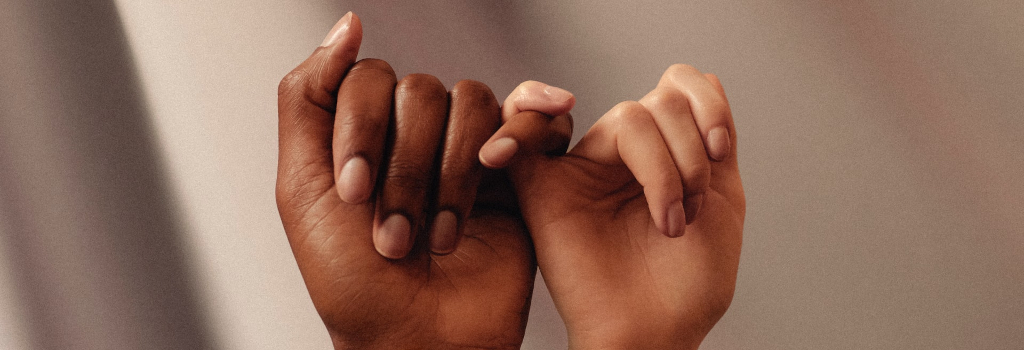
Since the United Nations first observed International Women’s Day on March 8 1975, we have seen a significant shift in attitudes towards female empowerment – with recent campaigns moving away from raising awareness to instead push for real change. This year is no different – the UN Women group has announced that ‘Gender equality today for a sustainable tomorrow’ will be the theme of this International Women’s Day, as participants are encouraged to advance gender equality during the current climate crisis with female leadership efforts.
For B2B businesses, International Women’s Day has also become a key marketing opportunity to raise awareness and push for significant gender changes. In fact, many consumers believe that brands can do more to drive social change than government bodies – so it is up to businesses to rise to the occasion. But behind every effective campaign there should be a drive for a change, an authentic message or an act with purpose. According to a recent study, when customers think a brand has a strong purpose, they are four to six times more likely to trust, buy, champion and protect companies with a strong purpose over those with a weaker one.
Here’s our rundown for the most important aspects that every B2B marketing team must consider this International Women’s Day:
The power of authenticity
To create an effective campaign that connects with today’s consumers, brands can no longer focus solely on SEO activities and follow a self-serving agenda. Campaign messages must have a solid tie back to the brand’s mission and engage with current demands. Customer awareness of social problems is constantly evolving, and their brand choice is likely to depend on how brands are tackling important matters. For instance, more companies are being encouraged to disclose their impact on the climate and report on other issues related to sustainability, equality and governance to create brand loyalty and forge longer lasting customer relationships.
HP’s ‘follow your dreams’ campaign back in 2018 is a clear example of a brand that got it right – the campaign’s main message acknowledging the power of women’s voices was a clever way to promote the company’s social impact programs, such as ‘Girl Rising’ and ‘Women Deliver’, that are ‘rooted in the belief that technology can be a democratizing force in telling and sharing stories that matter’. HP’s International Women’s Day campaign was backed up with a clear demonstration of their meaningful and long-term commitment to female advancement.
A fine line
Global holidays such as International Women’s Day are not a time to cynically increase your sales, especially if you want to make a genuine stand. Show the consumer what this day means to your organization, how you celebrate and your understanding of the topic. Simply following the trends, using hashtags, stereotypes or keywords can be very misleading and can inadvertently damage a brand’s reputation. As recently as last year, an unfortunate marketing attempt for International Women’s Day happened to one of the most popular fast-food companies – Burger King. The official brand Twitter account posted a tweet stating “Women belong in the kitchen”, following with their own reply “If they want of course. Yet only 20% of chefs are women…” Putting aside good intentions such as encouraging females into the hospitality industry and to pursue a culinary career, Burger King met with incredibly negative feedback. The brand was accused of being tone-deaf to gender disparity and using harmful stereotypes. Subsequently, the company deleted the original tweet and officially apologised. Lesson learned – read your audience and be careful with a joke – the line can be very thin.
Use it as an opportunity to showcase key team members
Organizations could highlight recent work and projects done by their female employees, talk about inspiring stories and share their successes and achievements. Simple, authentic appreciation without pushing the boundaries is always an intelligent choice for every organization.
One of our software clients recently decided to use International Women’s Day as an opportunity to discuss and present how female business leaders can bring representation into the boardroom. The company has also discussed the importance of gender equality and is encouraging more women to step in STEM professions across many industries.
Another example has been run by the BBC since 2013 – a campaign called 100women. This is an event lasting three weeks, gathering women from all around the world and sharing stories, career paths, achievements and debates from diverse backgrounds and industries. Emphasising different industries, cultures and highlighting diversity between many sectors shows the depth of the organization and a genuine commitment to diversity and inclusion – and this can bring mutual benefits. In fact, the most diverse companies are now more likely than ever to outperform less diverse peers on profitability.
B2B brands: Thoughtful involvement is key!
Brands should take this opportunity as a long-term actions or partnership instead of considering as a one day or a week done deal. We may be tempted think that B2B as a non-consumer facing sector is not an ideal avenue to promote social causes that are top of the public consciousness. But this is far from the truth: it is an excellent opportunity to highlight and tackle social issues, but only if done in a sensitive, well-measured way where brands can demonstrate their stance and actions.
Angelika Winiarz is PR Executive at IBA International.

Leave a comment